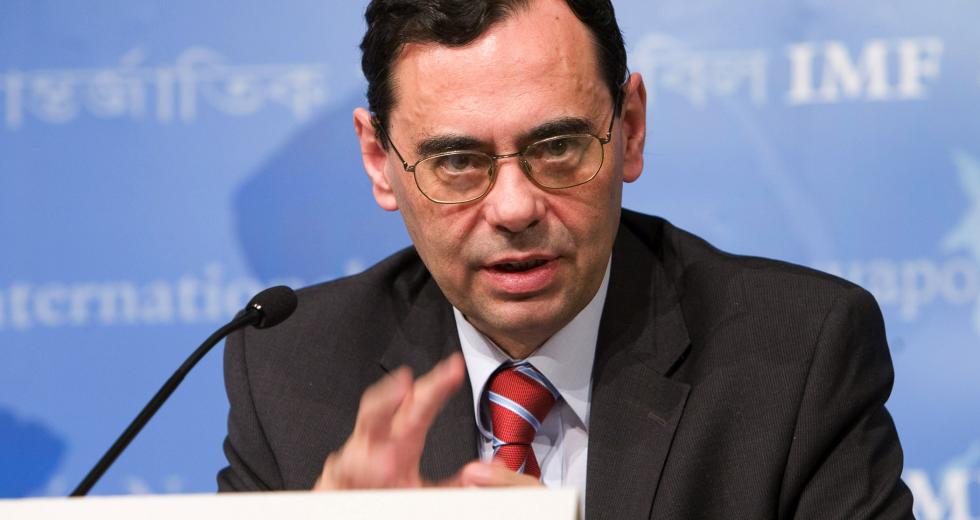
Speaking at a meeting of the Official Monetary and Financial Institutions Forum in London last week, Jaime Caruana, general manager of the Bank for Internation Settlements warned that "if a medicine does not work as expected, it's not necessarily because the dosage was too low. Maybe instead the course of treatment, and the role of the medicine within it, should be reconsidered," he said. "Most likely something else is needed."
As a result of QE, central banks have pumped trillions of pounds, euros, dollars and yen into the global economy by buying up government bonds with hyperinflationary funny money, while at the same time keeping interest rates at zero or near zero.
The policy has resulted in a whole new opportunity for casino bankers to take bets on whether the central banks can get out of the hole they have dug for themselves in any kind of graceful way.
Caruana warned that Central Bank policy is distorting the financial system and storing up trouble for the future. It is permitting governments to "kick the can down the road" and delay reform.
In other words, QE and falsely low interest rates are the only things keeping the financial system afloat at present, and since the only way to solve the problem is to implement serious reforms - Glass Steagall for example. Since no-one has the guts to implement Glass Steagall, they "kick the can down the road".
Although not as outspoken, the IMF also criticised Central Bank policy last week. Looking at the Bank of England, the Bank of Japan and the Fed, they found that all three would lose significant amounts of money if they found themselves in the situation that the interest they had to pay on reserves held with them by commercial banks turned out to be greater than the earnings they receive from the assets they hold.
Under a worst-case scenario, the IMF said losses could top 7% of GDP for the BOJ, nearly 6% of GDP for the BOE, and more than 4% at the Fed.
As was to be expected, the criticims of the IMF and BIS have resulted in squeals of anguish from so-called economists, including none other than UKIP's Tim Congdon.
I am totally bewildered by what the BIS and the IMF are saying ... There is no sign that inflation is out of control, and US house prices are far from their peak. QE has been necessary to stop the M3 quantity of money falling, which could do great damage. The IMF has departed from its monetary tradition.
What about the damage done by the increase of M3 quantity of money by over 400% in the last 30 years or so?
Today's inflation news that the Consumer Price Index has fallen to 2.4% during April is nothing to write home about and provides no evidence that the warnings of the BIS and IMF should be ignored, since the main factors bringing the headline figure down, for example fuel prices, are heavily manipulated.
Real economy prices, for example food, continue to rise - 40% since 2007, with no relief in sight as weather conditions continue to hit crop production across the globe.
The global policy makers understand very well the implications of the policies they implement. The BIS and IMF are expressing that very well. We ignore them at our peril. The solution lies in Glass Steagall and the Bradbury Pound.

